UArizona Cancer Center R35 Research Spotlight
Funding totaling nearly $20 million is allowing Cancer Center researchers to continue their long-term investigations in the quest to find tomorrow’s treatments, today.
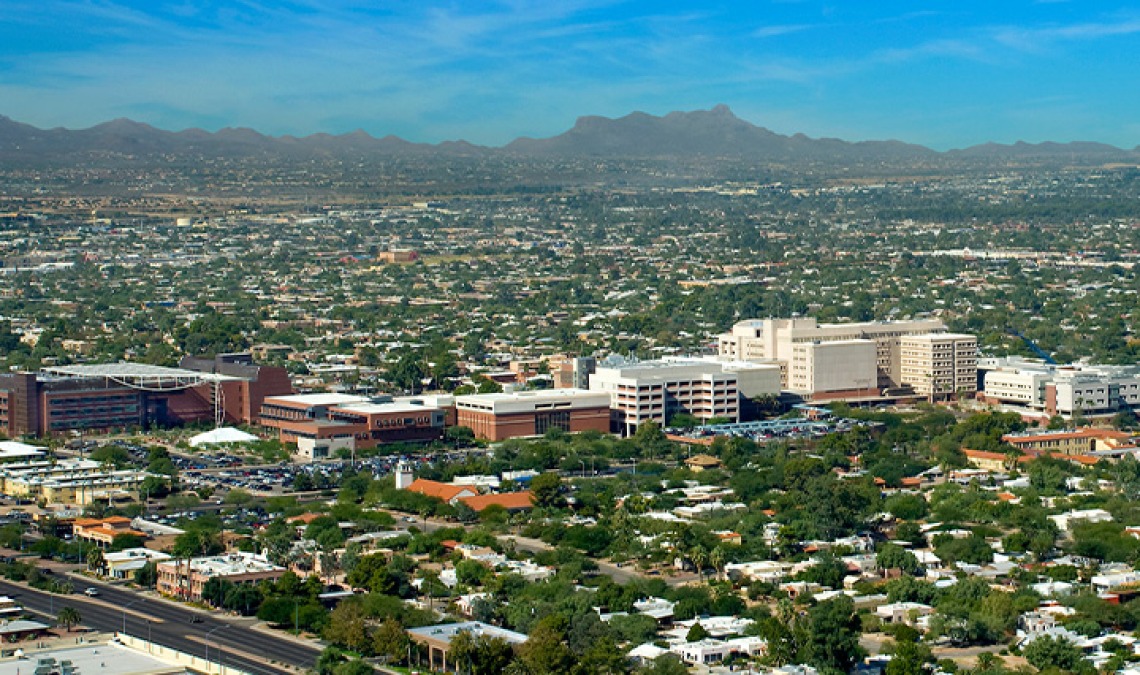
An increasing number of researchers at the University of Arizona Cancer Center are being awarded long-term funding by the National Institutes of Health (NIH) to advance their unique and impactful investigations into finding tomorrow’s cancer treatments, today.
Totaling nearly $20 million, five UArizona Cancer Center research members are currently receiving R35 funding from NIH, including three new awards this summer. These grants provide long-term support to experienced investigators with an outstanding record of research productivity. This support is intended to encourage investigators to embark on long-term projects of unusual potential, according to NIH.
“We have outstanding and incredibly dedicated scientists here at the Cancer Center,” said Joann Sweasy, PhD, Nancy C. and Craig M. Berge Endowed Chair for the Director of the Cancer Center. “The UACC along with its core facilities and the highly collaborative environment is a great place to perform high-impact science.”
Dr. Sweasy, who was named the center’s director in June following nine months serving as the interim director, is one of the three investigators awarded an R35 this year. Her project is investigating the role of the environment in the development of autoimmunity, which is linked to increased risk of certain types of cancer.
Three of the Cancer Center’s four research programs include investigators with current R35 projects. Dr. Sweasy is one of three Cancer Biology Program members being funded by an R35, while the Cancer Prevention and Control Program and Therapeutic Development Program each have one researcher receiving such funding.
Finding Tomorrow’s Treatments, Today: August 2020
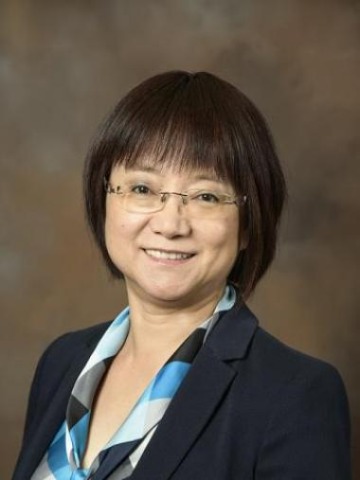
Donna D. Zhang, PhD
Musil Family Endowed Chair in Drug Discovery
Associate Director of Superfund Research Program
Professor of Pharmacology and Toxicology
Cancer Prevention and Control Program, Research Member
Project Title: NRF Transcription Factors in Environmental Stress and Disease Intervention
Grant Number: R35ES031575-01
Administering Institute: National Institute of Environmental Health Sciences (NIEHS)
Funding: $7.32 million (8 years)
Project Research: Exposure to arsenic affects 160 million people worldwide, increasing the risk of developing cancer and diabetes. Dr. Zhang studies how arsenic induces diseases, with the goal of identifying new pharmaceuticals to prevent or treat adverse health effects resulting from arsenic exposure. She has discovered that constant activation of NRF2, a protein that controls key aspects of the cell’s defense system by maintaining cellular redox and metabolic balance, can drive cancer progression, metastasis, and resistance to therapy, as well as promote a pro-diabetic shift in metabolism, all of which occur following chronic, low-dose arsenic exposure.
Dr. Zhang Says: “The goals of this project are to characterize the molecular bases of diseases associated with arsenic exposure, and to identify ways in which NRF2, as well as the other NRF protein family members (NRF1 and NRF3), can be effectively harnessed to prevent or treat arsenic-induced lung cancer and Type II diabetes.”
Sweasy.jpg
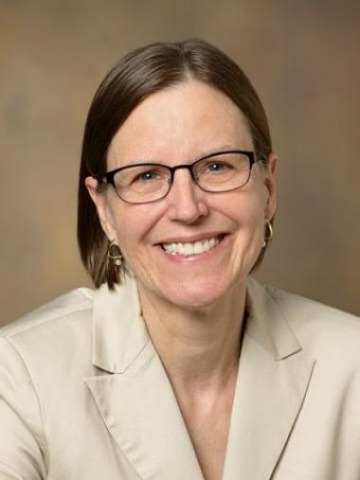
Joann Sweasy, PhD
Joann Sweasy, PhD
Director, University of Arizona Cancer Center
Nancy C. and Craig M. Berge Endowed Chair for the Director of the Cancer Center
Associate Director, Basic Sciences
Cancer Biology Program, Research Member
Project Title: Aberrant DNA Repair and Lupus
Grant Number: R35ES031708-01
Administering Institute: National Institute of Environmental Health Sciences (NIEHS)
Funding: $6.2 million (8 years)
Project Research: Systemic lupus erythematosus (SLE) is a devasting autoimmune disease (a condition in which the body's immune system mistakes its own healthy tissues as foreign and attacks them) that affects over one million Americans of African, Hispanic, Asian and Native American ancestry. Dr. Sweasy is studying how defective repair of DNA in combination with environmental exposures leads to the development of autoimmunity.
Dr. Sweasy Says: “We are investigating the role of the environment in the development of autoimmunity. Although we know that autoimmunity has a genetic component, scientists also believe that the environment plays a significant role in the development of disease. Our work will also help to elucidate mechanisms underlying responses to cancer immunotherapy."
marty.jpg
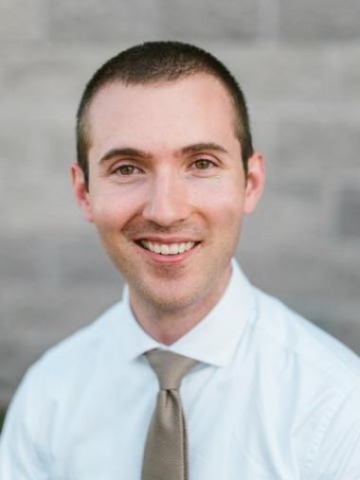
Michael Marty, PhD
Therapeutic Development Program, Research Member
Project Title: Unraveling Membrane Protein-Lipid Interactions Using Nanodiscs and Mass Spectrometry
Grant Number: 5R35GM128624-02
Supplement Number: 5R35GM128624-02S1
Administering Institute: National Institute of General Medical Sciences (NIGMS)
Funding: $1.9 million (5 years)
Project Research: Dr. Marty’s R35 focuses on studying how proteins in the cell membrane interact with the lipids (fats) that make up the membrane. This is important because lipids can change in cancer cells, and his lab seeks to be able to understand how these changes lead to other changes in membrane protein activity. In addition, Dr. Marty is studying the mechanisms of how potential therapeutics form toxic pores in membranes that could provide new approaches to treat cancer and infections.
Dr. Marty Says: “There is a lot that we don’t understand about interactions within lipid membranes, largely because we do not have the tools to see what is going on. I started this research as a graduate student and postdoc and have continued it in my lab at UArizona. We have been focused on first developing analytical methods to study these systems and, now that we have some of the methods developed, we are turning to study biomedical targets.”
sutphin_0.jpg
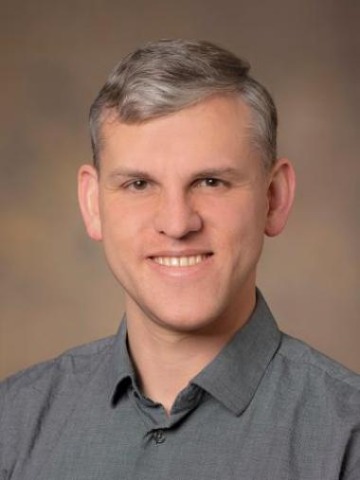
George Sutphin, PhD
Cancer Biology Program, Research Member
Project Title: Defining the Genetic Architecture of Multi-Stress Response
Grant Number: 5R35GM133588-02
Administering Institute: National Institute of General Medical Sciences (NIGMS)
Funding: $1.9 million (5 years)
Project Research: Dr. Sutphin seeks a better understanding of how cells and organisms respond when challenged with multiple, distinct forms of stress. Different cancer subtypes are characterized by specific combinations of cellular stress, such as DNA damage, metabolic stress and oxidative stress. While many forms of cellular stress and their characteristic cellular response pathways have been studied extensively in isolation, relatively little work has been done in the context of human disease to understand how cells respond when challenged to multiple forms of stress simultaneously.
Dr. Sutphin Says: “There appear to be stress response pathways that cells activate only under specific stress combinations. Depending on the specific set of cellular stresses present in a particular cancer subtype, these multiple-stress response pathways represent promising molecular targets for new cancer drugs. Alternatively, cancer cells extensively restructure their metabolism and other aspects of their biology to meet the high energetic and biosynthetic demands of a growing tumor. We anticipate that cancer cells will be more sensitive than normal cells to specific combinations of cellular stress. Inducing these stress combinations may selectively eliminate cancer cells.”
Media Contact:
Blair Willis
520-626-0331
bmw23@arizona.edu
About the University of Arizona Cancer Center
The University of Arizona Cancer Center is the only National Cancer Institute-designated Comprehensive Cancer Center with headquarters in Arizona. The UArizona Cancer Center is supported by NCI Cancer Center Support Grant No. CA023074. With its primary location at the University of Arizona in Tucson, the Cancer Center has more than a dozen research and education offices throughout the state, with more than 300 physicians and scientists working together to prevent and cure cancer. For more information: cancercenter.arizona.edu(Follow us: Facebook | Twitter | YouTube).

